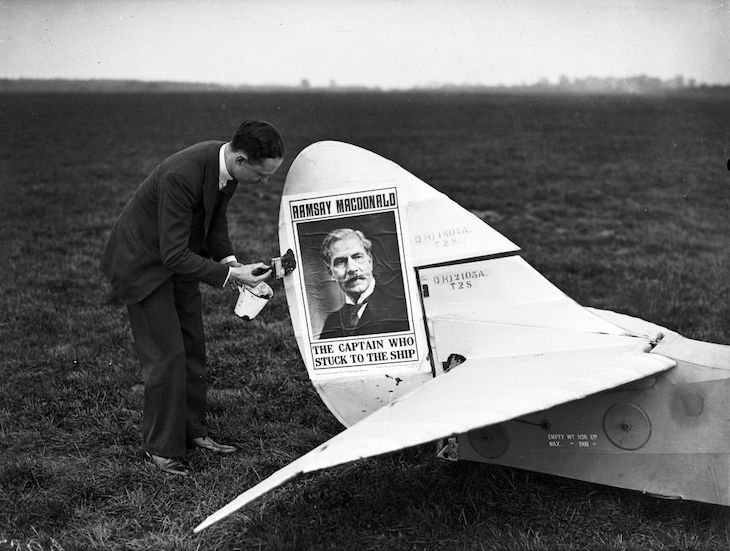A century ago today, the first ever Labour government was formed. Yet even many Labour members will probably be ignorant of the anniversary. To be fair, most historians of the party (this one included) have overlooked the government in favour of the superficially more consequential post-war administrations, especially that of 1945. After all, the 1924 government lasted just nine months and its legislative successes were few.
Formed after the inconclusive December 1923 general election left the Conservatives unable to command a Commons majority, as his was the second largest party and enjoying qualified Liberal support, Labour leader Ramsay MacDonald stepped in. Few believed he would last long in Number 10: Liberals even thought they were offering Labour a poisoned chalice hoping power would expose the party’s incapacity to govern and so encourage a revival in their own fortunes. Given its minority status, Labour’s record was understandably limited. But that MacDonald managed to perform the basics of government at all was the biggest surprise – and his greatest achievement – and one which helped condemn the Liberals to irrelevance.
MacDonald was about as unlike Starmer as it is possible to be
But while a century separates us from MacDonald’s first stint as prime minister, the dilemmas he faced and the strategy he followed to solve them remain more than historical curiosities. They are relevant to a fuller understanding of Starmer’s Labour as it prepares for what most expect will be one of the party’s rare periods in office. For it was MacDonald, rather than Kier Hardie after whom Starmer was named, who set the template for how all electorally successful Labour leaders would subsequently act.
In personal terms, MacDonald was about as unlike Starmer as it is possible to be. A tall, romantic figure he beguiled and enthused audiences with a utopian rhetoric that envisioned the dawn of socialism. But in key structural ways their positions are much the same. Elected leader largely thanks to the support of his party’s left MacDonald believed Labour could only win power by appealing to the nation as a whole: the well-off and the poor, socialists and those of more vaguely progressive views or none at all. This meant keeping the trade unions, despite their crucial funding of the party, at some distance: in office MacDonald was no easy touch when industrial action was threatened on the docks and London transport. His government’s economic policy hardly deviated from the orthodoxy of the day: the object of his chancellor was limited to restoring stability to a still-recovering post-war economy in the hope that would on its own create the basis for growth. All this will sound familiar to many students of the current Labour leader.
MacDonald as a result often found himself – like Starmer – at odds with his party. The left demanded his government propose ambitious socialist legislation, daring Liberal and Conservative MPs to vote them down and fight a new election on that basis. If they believed this would result in a Labour landslide MacDonald thought that a foolish dream. Instead, his object in government was to demonstrate the party could simply govern, that those millions of moderate voters who feared Labour in power would be disastrous might then support the party in the future. If respectability was MacDonald’s object however his government still introduced careful measures to build more affordable homes and improve benefits for the unemployed and pensioners: given its weak parliamentary position these were no mean feats.
Even so MacDonald’s time as prime minister was shorter than it might have been. Because he did not fully trust his party, he took on too much work including being his own foreign secretary and from that came various unforced errors. In any case, despite his pursuit of respectability MacDonald was faced by an unremittingly aggressive right-wing press which cast him as corrupt and Labour in the pocket of the new Communist regime in Russia. Once the Liberals withdrew their support MacDonald called an election in October, which saw Labour lose seats but win a million more votes than in 1923 and a Conservative government returned with a healthy majority. Historians still debate how far the Daily Mail’s publication of the Zinoviev Letter, which purported to be a missive from Moscow confirming its hold over Labour, swung the election against MacDonald. If that remains a moot issue, the reality of a hostile media intent of making trouble for even a moderate Labour leader is one with which Starmer will be familiar.
One big difference that marks out MacDonald in 1924 from Starmer in 2024 is the latter will probably head a government armed with an impressive Commons majority. MacDonald could defuse left wing and union demands that his government be more radical by pointing to his tenuous Parliamentary position. Starmer will not have that excuse while managing an impatient party and frustrated unions not just for a few months like MacDonald but for five long years.






Comments